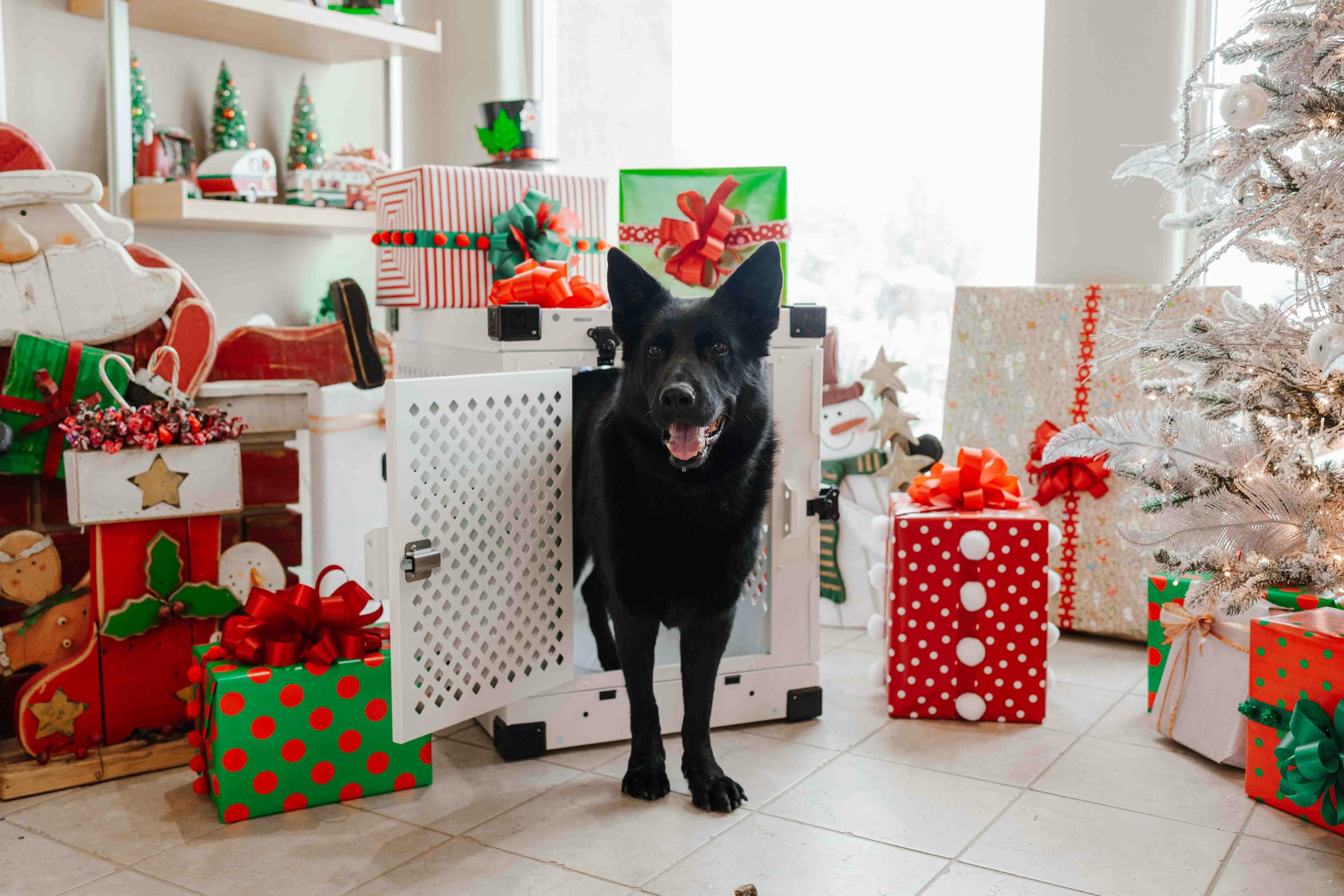The holiday season brings festive decorations, beautiful flowers, and vibrant plants into our homes. However, many popular holiday plants can be toxic to dogs, posing a hidden danger during the celebrations. It’s essential to be aware of the plants that can harm your furry friend, especially as they may be more curious during the holidays.
To help keep your dog safe, here are 7 common holiday plants that are toxic to dogs and should be kept out of their reach:

1. Poinsettias
Poinsettias are one of the most iconic holiday plants, with their bright red and green leaves, but they are mildly toxic to dogs. While they won’t cause life-threatening issues, ingesting the sap can lead to stomach upset, including drooling, vomiting, and mild irritation in the mouth and stomach. If your dog chews on a poinsettia, it’s important to monitor them and contact your veterinarian if symptoms persist.
2. Mistletoe
Mistletoe, a beloved holiday decoration, is highly toxic to dogs. Both the berries and leaves contain compounds that can cause serious health issues if ingested. Symptoms of mistletoe poisoning include vomiting, diarrhea, difficulty breathing, and even seizures. Keep mistletoe out of your dog’s reach and opt for faux versions if you want to hang it up.
3. Holly
Holly plants, with their red berries and glossy green leaves, are often used in wreaths and centerpieces during the holidays. Unfortunately, they can be toxic to dogs if ingested. Holly contains saponins and cyanogenic glycosides, which can cause vomiting, diarrhea, drooling, and lethargy. In severe cases, it may lead to more serious conditions, so it’s best to keep holly plants far from curious pets.
4. Amaryllis
Amaryllis flowers are commonly found around the holidays for their bright blooms and elegant look. However, they are toxic to dogs if ingested, particularly the bulbs. Symptoms of amaryllis poisoning can include drooling, abdominal pain, vomiting, and diarrhea. If your dog has eaten any part of an amaryllis, contact your veterinarian for guidance.
5. Lilies
While lilies are a popular flower for many occasions, they are highly toxic to dogs, especially the Easter and Asiatic varieties, which are commonly used in holiday arrangements. Ingesting even small amounts of lilies can lead to severe gastrointestinal issues such as vomiting and diarrhea, and in some cases, kidney failure. For your dog’s safety, avoid keeping lilies in your home during the holidays.
6. Christmas Cactus
Christmas cacti are beautiful, colorful plants that brighten up any home during the season. While they are less toxic than other holiday plants, they can still cause mild gastrointestinal upset in dogs if ingested. Symptoms may include drooling, vomiting, and diarrhea. While they are not usually life-threatening, it’s a good idea to keep them out of your dog’s reach to prevent any discomfort.
7. Pine and Fir Trees
While not toxic in the traditional sense, pine and fir trees can still pose a hazard to your dog. The needles can be sharp and may cause injury if chewed or swallowed. Additionally, if your dog consumes the needles or tree sap, it could lead to gastrointestinal issues such as vomiting or diarrhea. Ensure your dog doesn’t have access to the tree and its decorations.
How to Keep Your Dog Safe During the Holidays
With so many holiday plants around, it’s important to take precautions to protect your dog. Here are a few tips to help keep your furry friend safe:
- Decorate Carefully: Place plants and flowers on high surfaces or in areas where your dog can’t reach. Consider using artificial plants for decorations instead.
- Be Aware of Fallen Leaves and Berries: If your dog is outside, make sure they don’t come into contact with fallen berries or leaves from potentially toxic plants.
- Educate Guests: Remind guests to be cautious of plants, especially if they bring bouquets or arrangements into your home.
- Know the Signs of Poisoning: Familiarize yourself with the symptoms of plant poisoning in dogs, which may include vomiting, diarrhea, drooling, lethargy, and changes in behavior. If you suspect your dog has ingested a toxic plant, contact your veterinarian immediately.
The holidays are a time for celebration and joy, but they can also present hidden dangers to your furry family members. By being aware of the toxic plants commonly found during the season and taking precautions, you can ensure that your dog stays safe and healthy. If your dog consumes any part of a toxic plant, contact your veterinarian or an emergency animal clinic immediately.
At Ingleside Animal Hospital, we are committed to the health and safety of your pets, and we’re here to help with any questions or concerns you may have. Wishing you and your canine companion a joyful, safe, and healthy holiday season!
If you have questions and you'd like to reach out to us, you can call us directly at (602) 833-7511, or you can email us at [email protected]. Don't forget to follow us on social media Facebook, Instagram.
